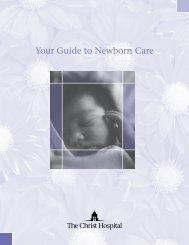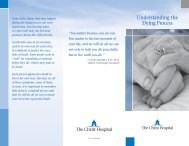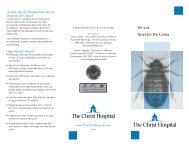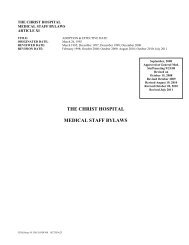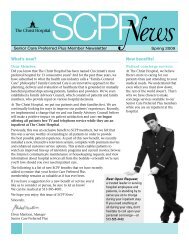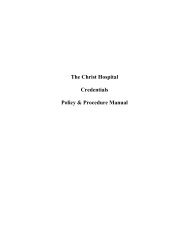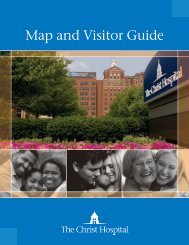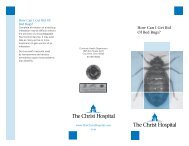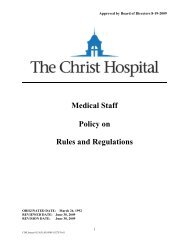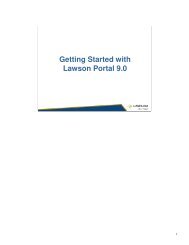Laura San Giacomo - The Christ Hospital
Laura San Giacomo - The Christ Hospital
Laura San Giacomo - The Christ Hospital
- No tags were found...
Create successful ePaper yourself
Turn your PDF publications into a flip-book with our unique Google optimized e-Paper software.
Health smartsPuzzlingperiodsMany women consider theirmonthly menses as an annoyance.But regular periods are anindicator of overall good health.When your periods are missed orcome with pain or discomfort, it’s asignal that something’s wrong. Howmuch do you know about what youlikely take for granted? Test yourknowledge by answering true or falseto these statements. <strong>The</strong>n check theanswers to see how you did.True or false?{1} <strong>The</strong> average menstrual cycle is 28 days.{2} Stress is not a cause of missed periods.{3} Painful periods are usually not cause for concern.{4} Heavy blood flow can be a sign of uterine fibroids.{5} Women who have endometriosis can never become pregnant.Test yourhealthknowledgeonlineTake more health quizzes andassessments online atwww.womenshealthexperience.com.Plus, find out what other womenare saying by participatingin our online polls!Answers{1} True. A woman’s body shedsthe uterine lining (blood and tissue)through the vagina during hermonthly menstruation when pregnancydoesn’t occur. Young teensmay experience cycles lasting up to45 days, or as short as 21 days.<strong>The</strong> period itself normally lasts anywherefrom two to seven days. <strong>The</strong>length of a woman’s cycle tends toshorten and become more regularas she ages.{2} False. Both physical and psychologicalstress can cause amenorrhea,a three-month or longerabsence of regular periods. Othercauses include excessive exercise,eating disorders, tumors andhormonal problems. If you’re notpregnant, visit your physician ifyou’ve missed your monthly mensesfor three cycles or more.{3} True. Dysmenorrhea—painfulperiods including severe cramps—are usually not serious and can beeased with heating pads, warm bathsor over-the-counter pain relievers.However, dysmenorrhea can sometimesbe caused by infection, endometriosisor ovarian cysts. If the painpersists, get it checked out.{4} True. Uterine fibroids are noncanceroustumors, common inwomen of childbearing age—yetmost women with fibroids can getpregnant. Some women with fibroidshave heavy bleeding and may bleedin between their regular periods.Medications can help relieve symptomsand sometimes the growth offibroids. If necessary, fibroids can beremoved surgically.{5} False. About 30 percent to40 percent of women withendometriosis—tissues that usuallygrow inside the uterus grow on theoutside instead, causing pain andheavy periods—have difficultybecoming pregnant. Treatments forthis type of infertility include in vitrofertilization, hormones and surgery.© 2009 Jupiterimages24Women’s Health Today



